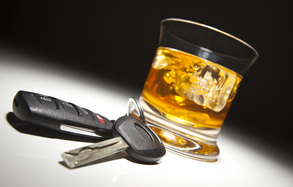Your level of alcohol influence is measured by Blood Alcohol Content, or BAC. In Virginia, if you’re over 21, you are assumed to be intoxicated if your BAC is 0.08% or above. If you’re driving a commercial vehicle, the limit is 0.04%. If you’re under 21 years of age your BAC limit is 0.02%.
But what does it take to be over the limit? That depends on a lot of variables, including gender, body type, metabolism, rate of drinking, the amount of food in your stomach and other drugs or medications you may be taking.
There are many charts available to determine your BAC, such as this one, but always keep in mind that the chart is for general guidance only as many other variables could significantly influence your BAC level.
According to the chart, for example, a woman who weighs 140 pounds and has 3 drinks within the course of an hour will be over the limit. If she has 3 drinks over the course of 3 hours, however, she stays below the limit. Keep in mind that when it comes to drinking, the fewer the pounds you weigh, the fewer the drinks you can tolerate. In general, men can tolerate more drinks due to their increased muscle mass.
What are the penalties for a DUI in Virginia?
After the first offense:
- Minimum 5 days in jail
- Minimum fine of $250.00
- License suspension of 1 year
- Interlock Ignition Device (IID) required if BAC is 0.15 or above.
After the second offense:
- Minimum 20 days to 1 year in jail
- Minimum fine of $500.00
- License suspension of 3 years
- IID required
After the third offense:
- Minimum 6 months in jail
- Minimum fine of $1,000.00
- Indefinite license suspension
Keep in mind that while you’ll be required to pay fines, you’ll also need to hire a lawyer and shell out for court costs. Your freedom of transportation will be limited while your license is suspended. You will spend time in jail. The bottom line is that it’s not worth drinking and driving. Always have a plan before you start drinking about how you will get back home.




 RSS Feed
RSS Feed